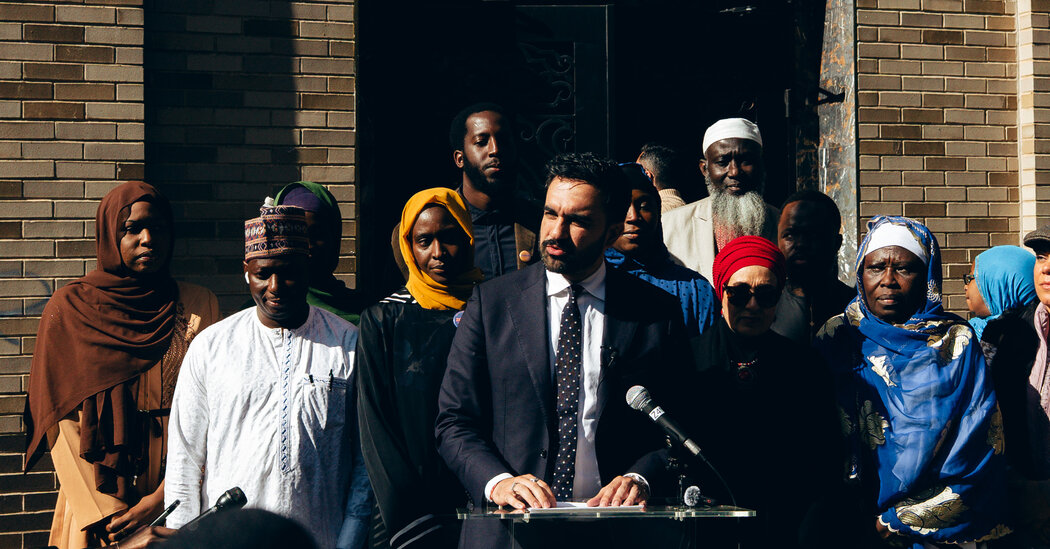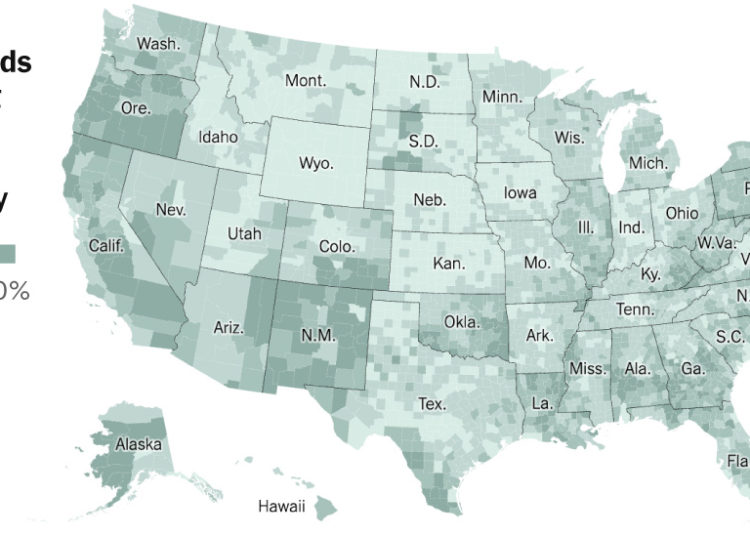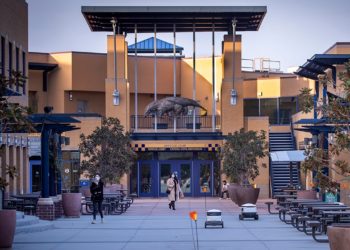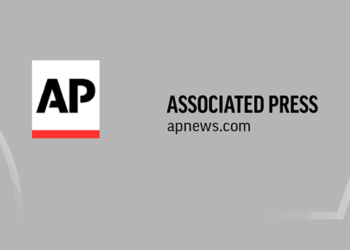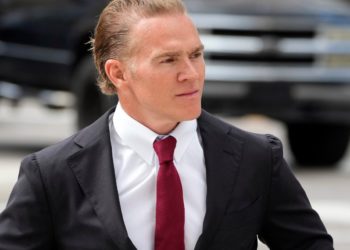It was a moment that some have compared to Barack Obama’s landmark 2008 speech about race, inequality and unity in American politics.
In the closing weeks of the mayoral campaign, Zohran Mamdani, the Democratic front-runner, veered off from the economic message he has clung to doggedly for more than a year.
“I want to use this moment to speak to the Muslims of New York City,” he said.
Standing outside the Islamic Cultural Center of the Bronx, Mr. Mamdani spoke, sometimes tearfully, describing his experiences with his faith, identity and Islamophobia, and the tendency among Muslims, including himself, to feel they need to play down their identity to succeed.
“No longer will I live in the shadows,” he said.
For the candidate, who would become the first Muslim mayor of New York, it was a topic he had rarely addressed since he entered the race last October.
But now, he said, he wanted to talk about what he described as anti-Muslim animus in the mayoral campaign, arguing that he had seen evidence of it in recent remarks by his two main opponents, Andrew M. Cuomo and Curtis Sliwa, and by the current mayor, Eric Adams.
It is the one form of bigotry that remains largely accepted, he said.
“One can incite violence against our mosques and know that condemnation will never come,” he said. “Elected officials in this city can sell T-shirts calling for my deportation without any fear of accountability.” In an era when Democrats and Republicans can agree on almost nothing, he said, one thing they share is a fear of Muslims.
The reaction from the political right was swift. The day after the speech, Vice President JD Vance taunted Mr. Mamdani on X, in a post that has received 22 million views. In The Wall Street Journal, Karl Rove, the longtime Republican strategist, wrote that the speech had revealed a “new, ugly side to his message that will likely cut his election margin.”
But for Muslims around the country, Mr. Mamdani’s speech has become both a conversation starter and a cathartic moment. With the election only days away, the brief, week-old address continues to resonate, not only in New York but well beyond.
“It was really quite incredible,” said Saher Selod, director of research at the Institute for Social Policy and Understanding, a nonprofit group that studies Muslims in America. “He’s coming out of the shadows, and he’s saying this to Muslims very publicly, that I see you, this is the experience that you’ve had, too. And so it is sending that message not just to Muslims, but to non-Muslims, which hopefully makes more visible what’s been so invisible for so long.”
A video of the speech that Mr. Mamdani’s campaign posted on X continues to reach a wide audience, with views now hitting 25 million — about five times the number of Muslims in all of America.
“It reminded me of Obama’s speech on race in 2008,” said Moustafa Bayoumi, an English professor at Brooklyn College and author of “How Does It Feel to Be a Problem? Being Young and Arab in America,” who has written extensively about Islamophobia.
“He’s responding to a moment of prejudice in the campaign the way Obama did,” Mr. Bayoumi said. “Addressing it head on, instead of taking the high road of silence.”
In a heavily Muslim strip of Bay Ridge, Brooklyn, Zein Rimawi, who runs an adult day care center, said the speech felt like a turning point for Muslims in the city. For too long, he said, politicians have felt free to ignore or even utter anti-Muslim comments in ways that they would not with other groups.
“I used to talk about before Sept. 11 and after Sept. 11,” he said, referring to the rise in anti-Muslim sentiment after the 2001 terror attacks. “Now there is ‘before Mamdani’ and ‘after Mamdani.’ People are not afraid to explain themselves and say: ‘Yes, I’m a Muslim, I’m an Arab, I’m a Palestinian. I am American. No difference, you are not better than me.’”
On the other side of the continent, Naima Ahmad, 41, a product designer who lives in San Francisco, said she was relieved Mr. Mamdani addressed a phenomenon well known within the Muslim community: Running for office anywhere in America often stirs an Islamophobic backlash. Until the speech, she said, Mr. Mamdani had tuned out “the background noise of threats and prejudice. It mattered that he brought this to light in these final days.”
Others were less struck by the speech. In Chicago, Zohreh Fanai, a 25-year-old graduate student, said her generation had not experienced the same Islamophobia as Mr. Mamdani’s, even in New York. And in Minneapolis, Kadir Abdulle, 59, a home care operator volunteering for a Muslim mayoral candidate, saw the attacks on Mr. Mamdani as par for the course for Muslim candidates. “It’s normal to me,” he said.
Mr. Mamdani’s candidacy has already had an effect as far away as the Deep South, said Emad Sabbah, a tech executive and board member of the Council for American-Islamic Relations in Atlanta.
Across Georgia, he noted, a record 12 Muslims are running for office this election — including Ruwa Romman, a Democratic state representative who is running for governor — and Mr. Mamdani’s political success has emboldened candidates in the deeply conservative state.
“As a Georgian Muslim, Mamdani’s speech struck a deep, emotional chord,” Mr. Sabbah said. “It wasn’t just political — it felt personal. His courage in calling out Islamophobia head on, while standing firm in his principles, was both inspiring and validating.”
The speech had a particular resonance for Muslims of Mr. Mamdani’s generation, who grew up largely after the Sept. 11 attacks, said Hamza Khan, 36, an engineer in Oklahoma City.
Among his peers, Mr. Khan said, “it felt like everything he’s saying was what we all wanted to say our whole lives. We’ve been told for years to be proud of who we are, but we don’t have a lot of examples in the mainstream of people acknowledging their Muslim identity as a major part of who they are. And he called out both sides, both parties. Both can be Islamophobic.”
For Bilqees Akhtar, the speech struck a personal note. Ms. Akhtar, 56, a school administrator in Richmond Hill, Queens, began the practice of covering her head after the Sept. 11 attacks, and said she has faced abuse sometimes, even in her ethnically diverse borough. The other day her teenage daughter, who recently started covering, was on a bus in Flushing when another woman stared her down.
“She had to move because she was scared the woman would spit on her,” Ms. Akhtar said.
So even after Mr. Mamdani’s speech, she said, “The fear is there. I’m glad he said something.”
Ms. Akhtar disagrees with many of Mr. Mamdani’s positions — “I believe in capitalism,” she said — but she voted for him, and voted early. Not because he is Muslim, she said. “Only because he stands for something.”
Reporting was contributed by Erin Marie Daly, Sean Keenan, Robert Chiarito and Jeff Ernst.
John Leland is a reporter covering life in New York City for The Times.
The post Mamdani’s Speech About Being Muslim Resonates Beyond New York City appeared first on New York Times.
